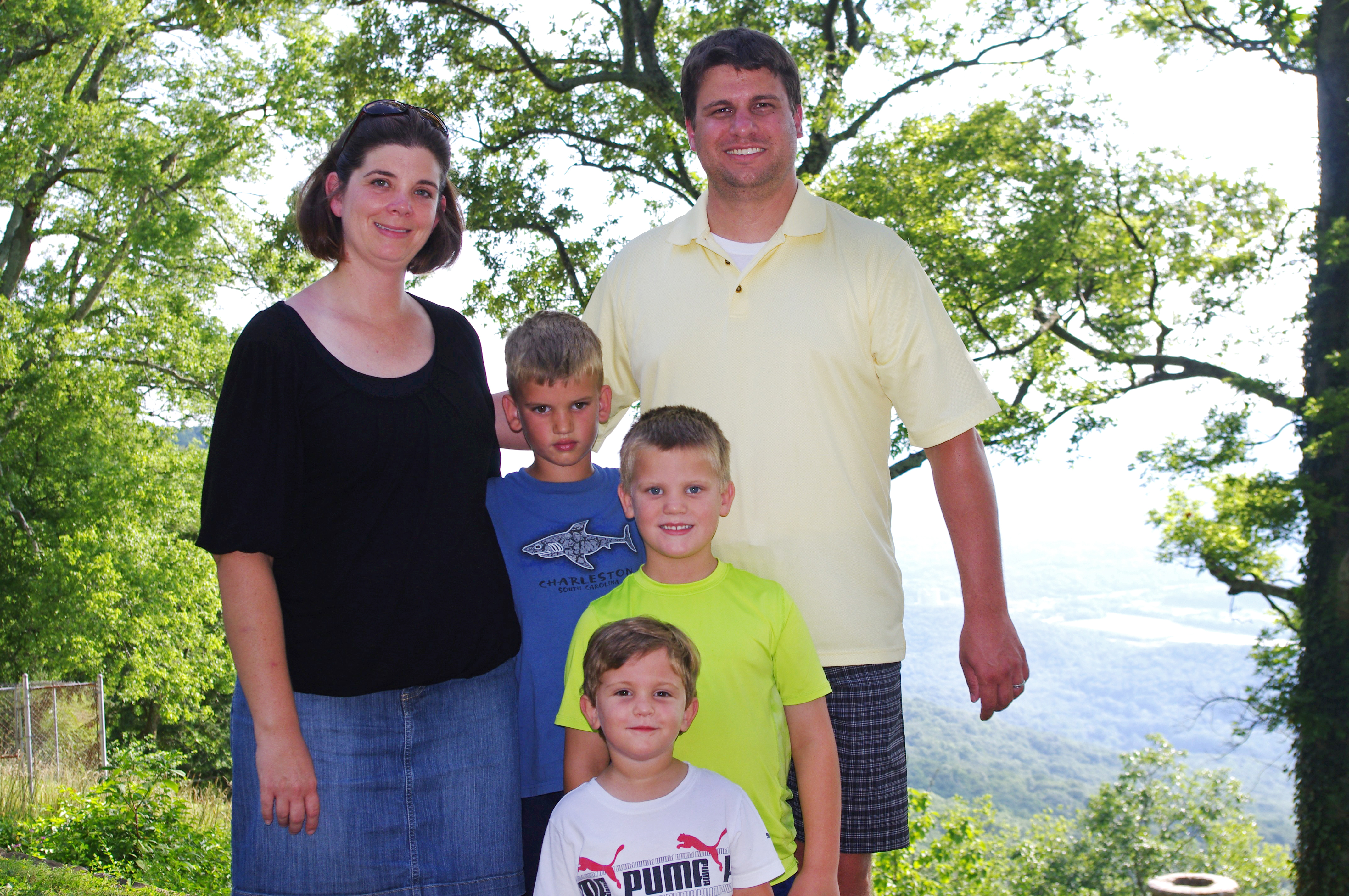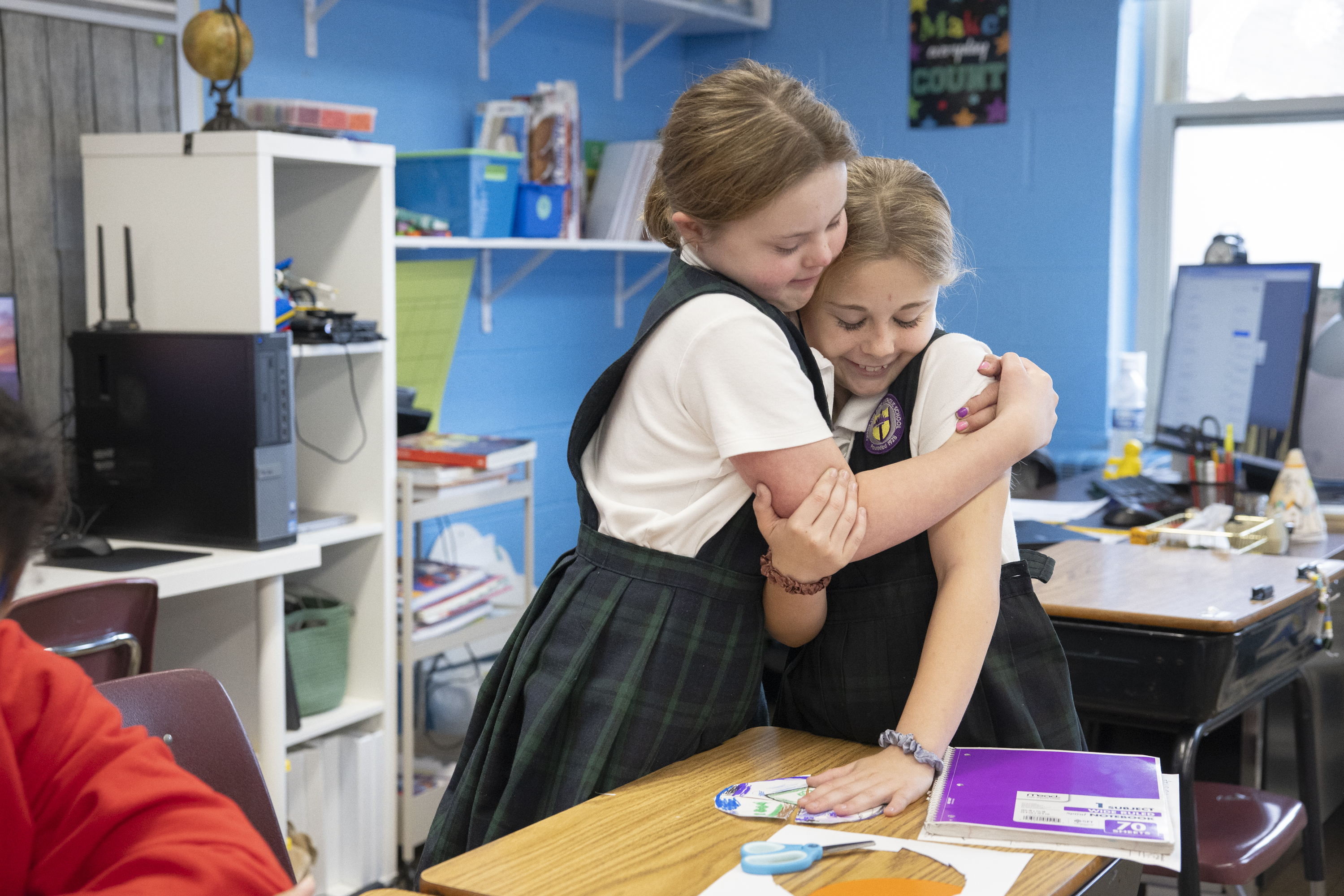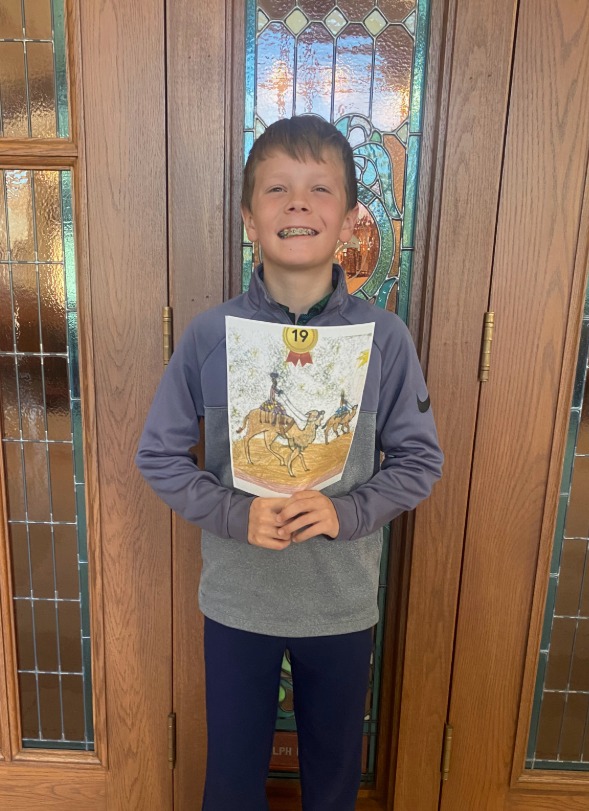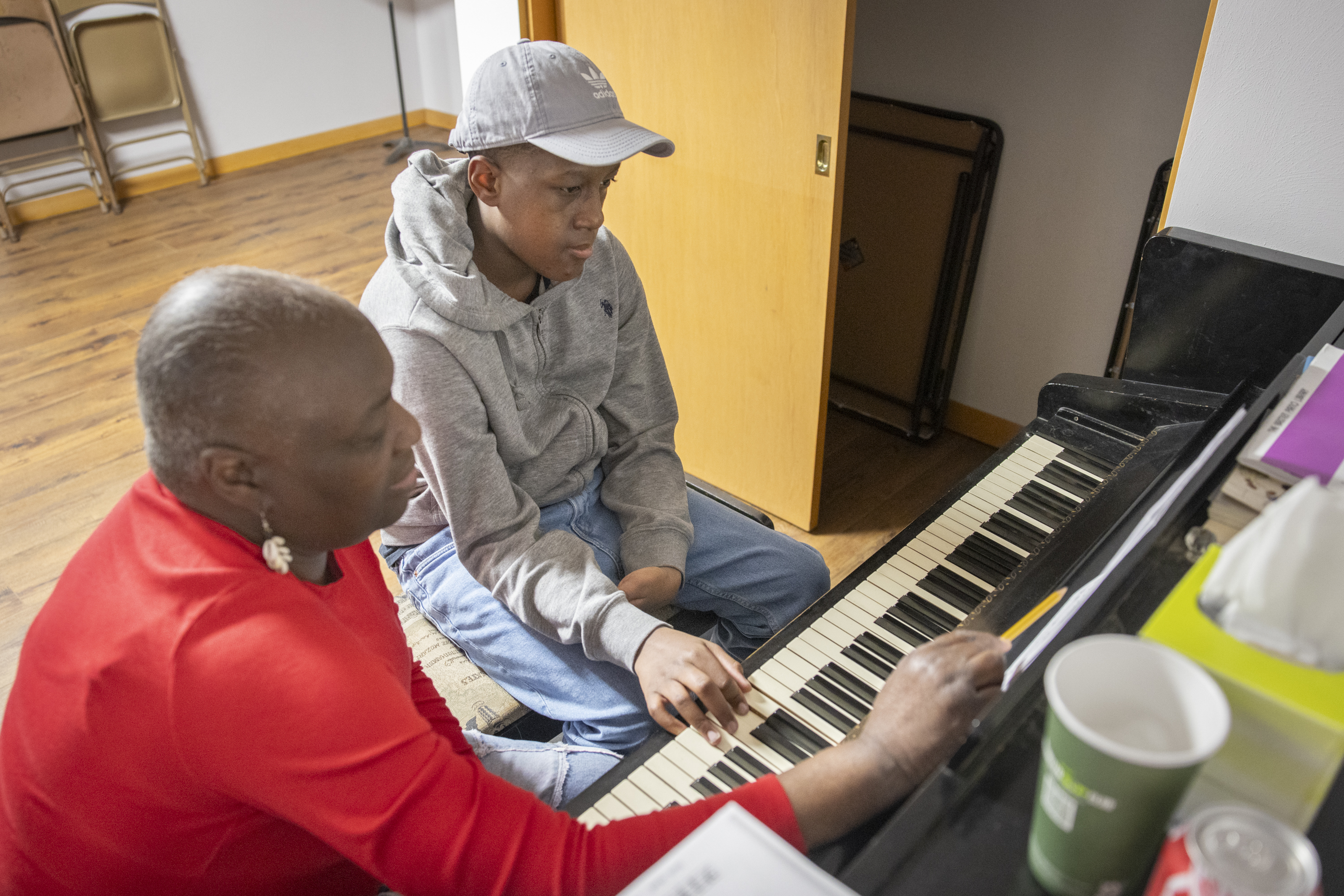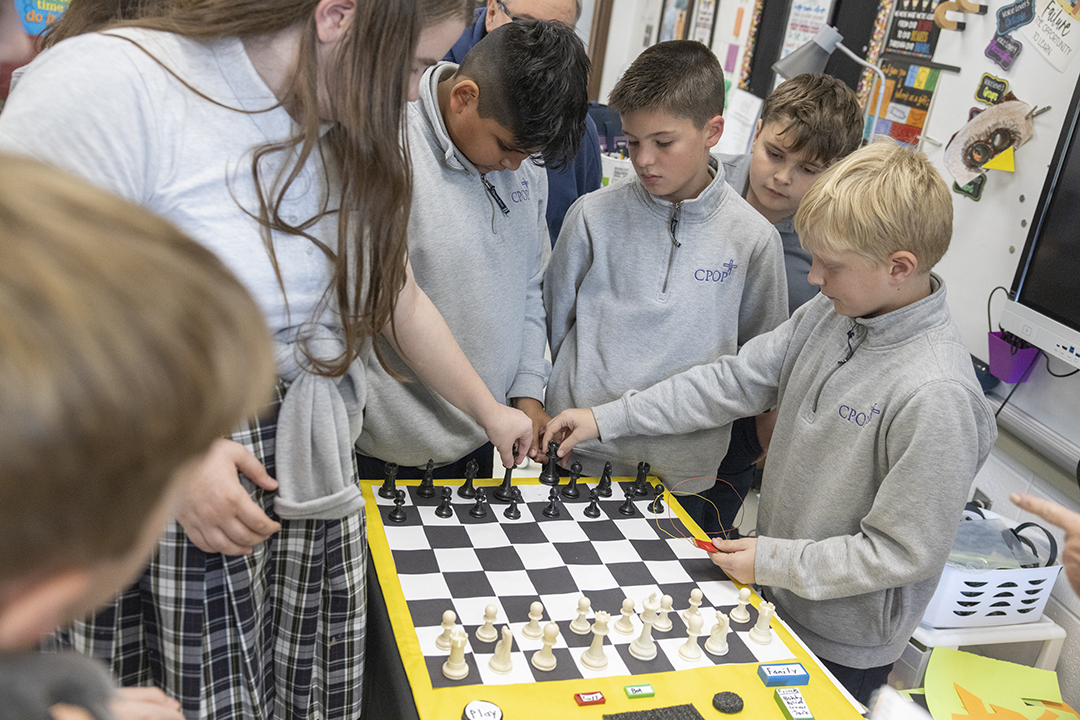The garden of life: St. Ann School project is one of many that reinforces concept of sustainable living
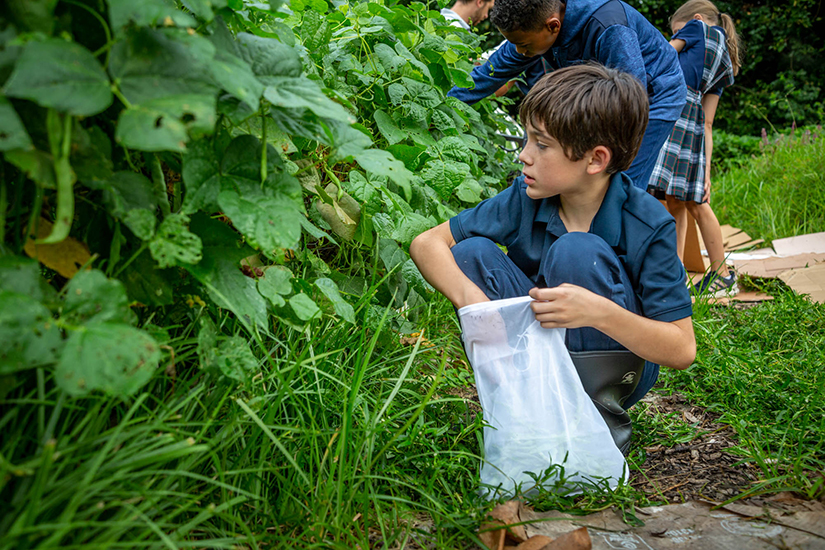
School has commitment to sustainable practices from gardening to recycling
John Tuhill raised his mesh bag like a prize. It was nearly filled to the brim with green beans, the reward of an early morning hunt through the raised garden beds behind St. Ann School in Normandy.
Pleased with the fruits (er, veggies?) of his work, the fifth-grader considered how those beans would end up at someone’s dinner table soon, either through the school’s community-supported agriculture (CSA) program or a nearby food pantry.
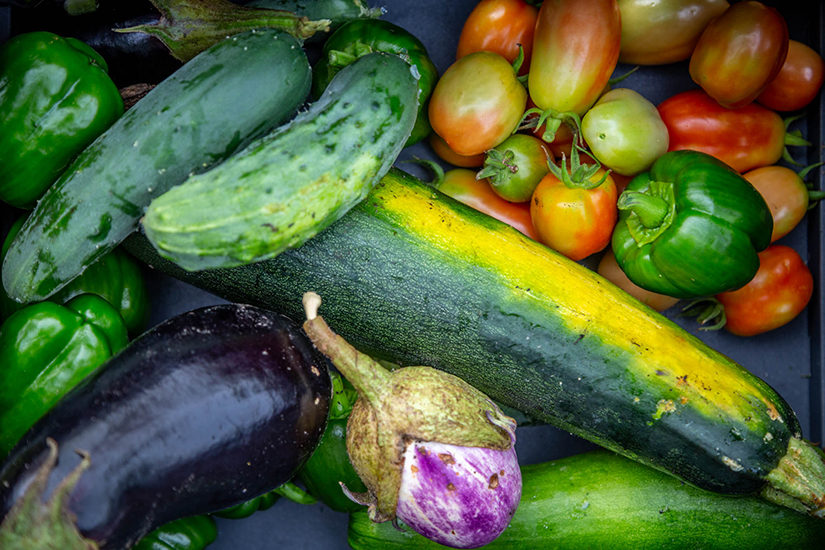
“Look at all these green beans,” he said with a grin.
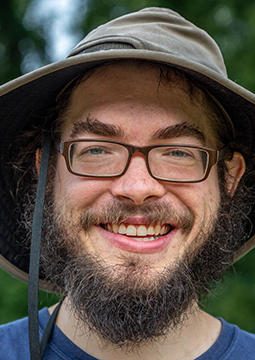
St. Ann School has supported a community garden on its campus for nearly a decade. It has grown in recent years under the oversight of eighth-grade teacher Matt Hubbard. The garden started with five raised beds and has expanded to 15. Hubbard, a 2003 graduate of St. Ann, added several fruit trees through a grant from Gateway Greening’s Giving Grove program and hopes to raise enough funds to install at least 10 more raised beds.
Students in the school’s Gardening Club, their parents and St. Ann parishioners volunteer throughout the year to maintain and harvest the garden, which includes zucchini, squash, tomatoes, beets, eggplant, green peppers, kale, cucumbers and sweet potatoes. Ten families purchase CSA boxes during the growing season, with funding going back into garden expansion efforts.
The garden is one way in which students are learning about care for God’s creation, through the principles of Catholic social teaching. Those lessons are presented both outside and inside the classroom, including through the school’s social teaching and religion curriculum, and elsewhere through best practices at school and through extracurricular groups.
Through its own small efforts, the school is embracing Pope Francis’ encyclical “Laudato Si,’” which emphasizes the human component that is critical to caring for the Earth.
“Care for creation is something that we’re committed to and always moving forward with that,” Hubbard said. “It’s the same belief system that destroys creation, that can also destroy communities. The reason we haven’t ended climate change, ended war, ended poverty is because we see them as separate things, and they’re absolutely not. Creating a community of people — a family of people — here is important to us.”
Retired P.E. teacher Bob Reid (known as the “Recycling Dude”) and Hubbard have revamped the school’s recycling efforts in the last few years to help reduce school waste. Students have learned how to reduce waste from lunches brought from home, composting and better recycling practices. The school cafeteria has eliminated paper plates, Styrofoam cups and plastic silverware, instead opting for items that can be washed and reused. Similar efforts have extended to the parish fish fry in Lent. In the long run, reducing waste and increasing recycling efforts conserves energy, reduces air and water pollution and greenhouse gases and conserves natural resources.
Other initiatives at the school include an aquaponics project and cooking classes. Hubbard also said he wants to introduce backyard homesteading and maintaining honeybees. The school sponsors a Missouri Stream Team, which maintains a creek on the parish property, the headwaters for a tributary of the River Des Peres and the Mississippi River.
Hubbard, who served in the Jesuit Volunteer Corps and lived at Bethlehem Farm, a Catholic community in Appalachia that focuses on service with the local community and teaches sustainable practices, said that teaching students to care for Earth is important. “I’m very concerned for our children,” he said. “I think we need a different vision of what we’re going to be like 10 years from now. Who knows what it’s going to look like? We have to be teaching and modeling that behavior to our students. Catholic schools need to be the leaders on this, for a more sustainable world.”
John Tuhill raised his mesh bag like a prize. It was nearly filled to the brim with green beans, the reward of an early morning hunt through the raised garden … The garden of life: St. Ann School project is one of many that reinforces concept of sustainable living
Subscribe to Read All St. Louis Review Stories
All readers receive 5 stories to read free per month. After that, readers will need to be logged in.
If you are currently receive the St. Louis Review at your home or office, please send your name and address (and subscriber id if you know it) to subscriptions@stlouisreview.com to get your login information.
If you are not currently a subscriber to the St. Louis Review, please contact subscriptions@stlouisreview.com for information on how to subscribe.

